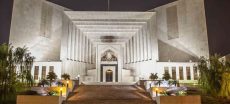The federal government’s decision to implement a national firewall aimed at controlling social media content and restricting unwanted material from reaching a broader audience has stirred discussion and debate.
According to reports, this firewall will utilize various techniques such as inspecting data from different internet protocol addresses, identifying sources generating propaganda, and filtering out or reducing the visibility of such content. Keyword filtering will also be employed to detect and mask undesirable material, preventing it from being accessed by external users.
The scope of this firewall extends to popular platforms like Facebook, YouTube, and X, with additional measures in development to regulate Virtual Private Networks (VPNs), which some users utilize to bypass restrictions. While there were initial attempts to block X, these efforts were met with resistance, particularly from the corporate sector. As a result, the government has temporarily halted such restrictions.
Read More: SHC Directs Prompt Removal Of inappropriate Content From Facebook And Other Apps
Despite this, the blockade of X has reportedly led to a significant decrease in its usage, from 4.5 million to 2.4 million users in Pakistan. It appears that X’s management is gradually complying with the government’s demands to curb accounts spreading contentious content or discussing sensitive topics openly on the platform.
In April, the Interior Ministry presented a detailed report to the Islamabad High Court explaining the reasons behind the blockage of X in Pakistan. The report highlighted X’s non-compliance with Pakistani laws, stating that the platform is not registered in the country. The ministry emphasized that the decision to block X was made to uphold Pakistani laws and did not infringe upon fundamental rights.
The implementation of a national firewall raises concerns about freedom of expression and access to information. While the government aims to regulate harmful content, there is a need to ensure that such measures do not unduly restrict individuals’ rights to express themselves and access diverse perspectives. Balancing these interests will be crucial in the ongoing discussions surrounding social media regulation in Pakistan.











